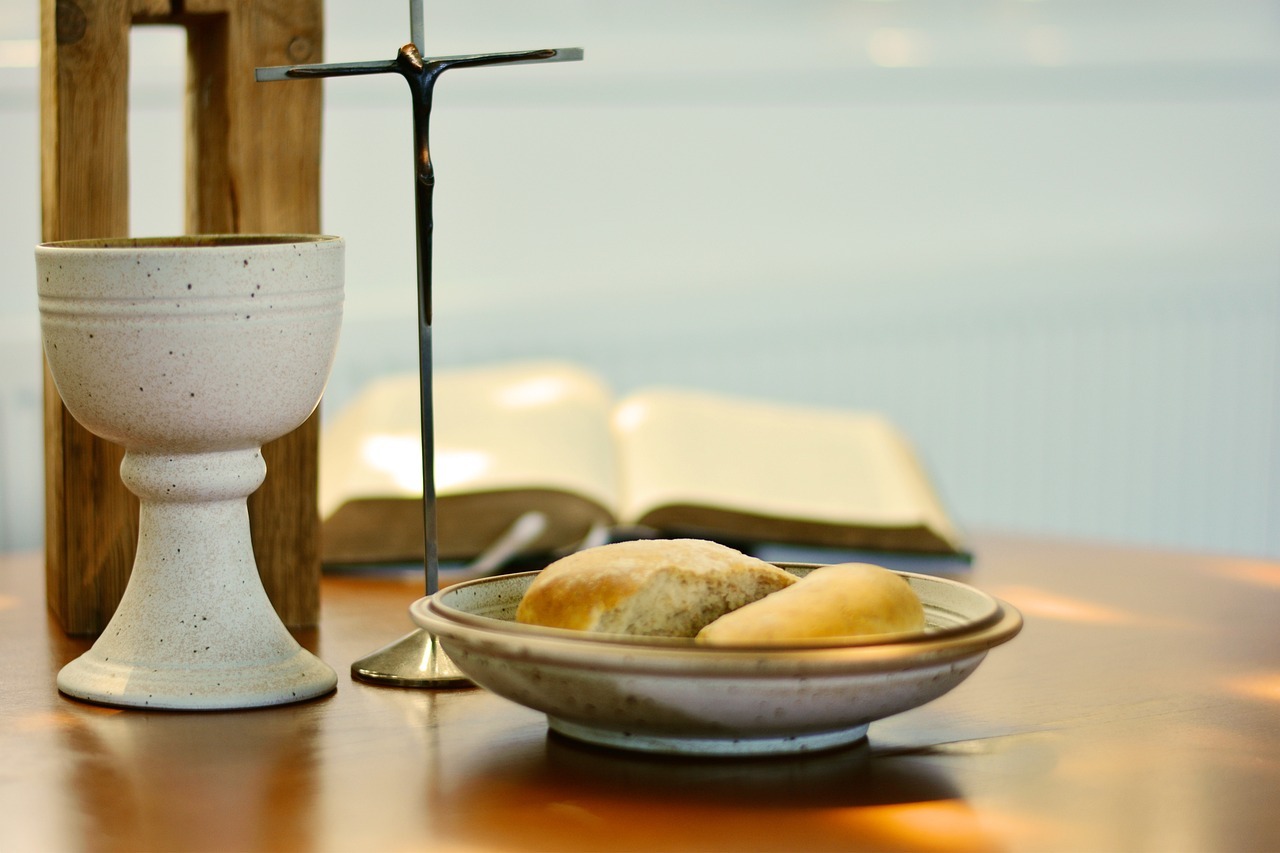Deuteronomy 8: 2-3, 14-16 (RM) or Hosea 5: 15 – 6:6 (RCL); Psalm 147 (RM) or 50 (RCL); 1 Corinthians 10: 16-17 (RM) or Romans 4: 13-25 (RCL); John 6: 51-59 (RM in Canada) or 51-58 (RM in the U.S.) or Matthew 9: 9-13, 18-26 (RCL).
Not long ago I saw on the news that in some locality in the United States, a group of agitators was campaigning to have the Bible declared an obscene book.
Oh crumbs. They’re on to us. I thought it was one of our best-kept secrets.
In theology graduate school, I remember sitting through agonizingly endless lecture courses in Hebrew Bible, the professor recounting tiresome lists of polysyllabic kings of Israel, Judah and God knows where, their endless battles and their now-disappeared kingdoms. And just for a momentary break I’d flip to the Song of Songs. I’d be taken to a world where lovers gently played with each other, of sweet, beguiling sensuality. It was what my local classical music station calls an “oasis of sanity.”
On this odd Sunday we have two completely different sets of readings because for those who use the Roman Missal it’s the “Solemnity of the Most Holy Body and Blood of Christ” and in the Revised Common Lectionary it’s more prosaically the “Second Sunday after Pentecost.” Let’s mix it up a little. We’ll take the first reading from the prophet Hosea in the RCL and the Gospel reading from John’s “Bread of Life Discourse” in the RM.
My Scripture study group had waaay too much fun with Hosea. (Always a good sign.) Nobody really knows who the prophet Hosea was, but his story is set up as a set of pointed metaphors and accusatory analogies. You might remember that it was he who married a prostitute named Gomer (in the story), but our reading here from chapter 5 takes place during the (oops) Syro-Ephramite War, 740-733 BCE.
Back to the fun stuff. This reading is loaded with thinly-veiled references to pagan fertility gods and rites, even the stuff that Christians might latch onto, saying “Oh this is in anticipation of Jesus’ death and resurrection.” No it wasn’t.
The Israelites who settled into Canaan seem to have acclimated themselves to the cult of Ba’al (which means Master.) They hadn’t quite forgotten the God who brought them out of Egypt, but seemed to have kept him for special occasions. Ba’al was the “husband” of the land, who rained down upon them like spring showers, fertilizing the land to bring forth fruit. The worship of Ba’al, in the words of New Testament scholar Werner Weinreich, “involved sacred prostitution with a staff centred in the temples of the land which sacramentally repeated the god’s marriage to the land. This was seen as a holy act with no degradation attached to it.” The verse, “on the third day he will raise us up” referred to the fertility god, Ba’al or possibly the Egyptian Osiris, rising up revived.
The words attributed to Jesus in John chapter 6 may not have been charmingly sensual but they certainly would have been shocking for the Hebrew people who heard them. “Eat my flesh?” Horrifying, practically cannibalistic. “Drink my blood?” Unthinkable for a people who saw blood as the seat of life.
Look at the image of bodily intimacy here. It’s profoundly incarnational, without resorting to dogmatic statements disconnected from the vibrancy and vulnerability of our living being. What we eat becomes part of us. And in eating, we become part of what we are eating, in Jesus’ turnaround. We eat, and enter into bodily intimacy, not as singular individuals, but as a whole people – the body of Christ.
A friend of mine, a respected New Testament professor, pointed out that in the Nicene Creed, the phrase that went “and became man” in the old version actually used the word sarx, “flesh,” in the original Greek. So in church we’d get to that line in the Creed and he’d say, clearly and audibly, “and was made fleshhh,” the shushing sound shooting through the sanctuary.
How subversive would it be to sneak a little fleshly sensuality into our spirituality? And into our relationship with the Creator, who is intimate relationship itself, and who created us out of flesh, as body and blood — playful, gentle, and now and then, with a touch of lovely sensuality.
© Susan K. Roll
Susan Roll retired from the Faculty of Theology at Saint Paul University, Ottawa, in 2018, where she served as Director of the Sophia Research Centre. Her research and publications are centred in the fields of liturgy, sacraments, and feminist theology. She holds a Ph.D. from the Catholic University of Leuven (Louvain), Belgium, and has been involved with international academic societies in liturgy and theology, as well as university chaplaincy, Indigenous ministry and church reform projects.





The lines that stay with me are: “What we eat becomes part of us. And in eating, we become part of what we are eating … not as singular individuals, but as a whole people – the body of Christ. Many thanks for this deepening insight.